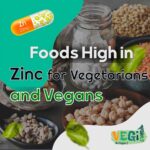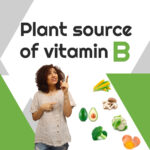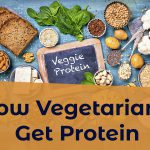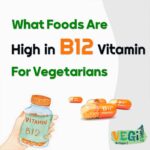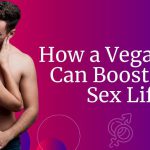Will Vegan Protein Cause Acne?
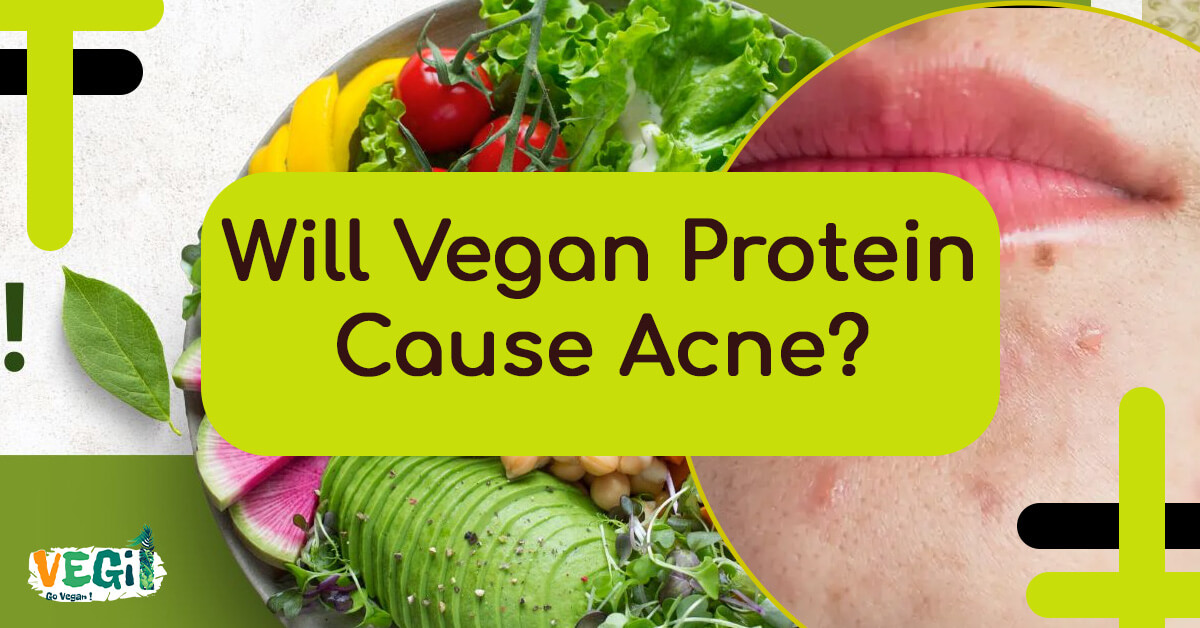
Protein is essential for the body’s functions, including muscle growth, repair, and overall health.
When it comes to protein supplements, two available options are vegan protein and whey protein. Although both can provide a reliable source of protein, there are some differences between them.
Many believe that vegan protein offers many health benefits, and one of them is it does not lead to the development of Acne on the skin, unlike whey protein.
Having soft skin is a dream for everyone. As someone who has personally experienced the frustration of dealing with Acne and its impact on self-esteem, I discovered through research and personal experimentation that my diet, specifically the consumption of whey protein, was a contributing factor.
If you suffer from the same situation, this article tells you will vegan protein cause Acne or not.
In this article you will read:
Understanding Acne
Acne is a common skin condition when hair follicles become clogged with oil and dead skin cells under the skin. It is most prevalent among teenagers, particularly in the face part rather than the back, chest, and shoulders.
Multiple factors cause acne breakouts, including hormonal changes, stress, certain medications, and diet, which is the main topic of this article.
Symptoms of Acne
The symptoms of Acne vary from one person to another, and how severe it can be depends on your circumstances. When you see these signs on your skin, you can be sure that they are Acne:
– Blackheads are pores that are plugged and have a black top.
– Whiteheads are pores that are plugged and have a white top.
– Pimples (pustules) are bumps filled with pus.
– Papules are small, discolored bumps that can be red, purple, or darker than your natural skin tone.
– Nodules are large, painful lumps beneath the skin, the more severe type of Acne.
– Cysts are painful lumps filled with fluid (pus) beneath the skin.
It does not matter which acne type you have on your skin; it can significantly impact your self-esteem, especially if you are a sensitive person like me and do anything to get rid of them. But why do these show up on our skin?
Why Acne appears on the skin?
Several factors can contribute to acne development, and I am going to tell you what these are:
-
Hormones
Fluctuations in hormone levels, such as during puberty, menstrual cycles, or hormonal imbalances along with surface bacteria on the skin, can lead to the release of glands substances, appearing as Acne on the skin.
The hormonal issues become active in teenagers’ and adults’ years.
-
Genetic factors
Genetic factors and family history have an important role in your skin type. While both your parents’ skin is susceptible to developing Acne on their skin, you will have the same condition due to your genes.
-
Diet
Diet has many roles in our life, so why not this one? Eating certain foods can lead to Acne. But what are these?
According to studies, these foods are listed in the group of acne causes:
- Foods high in sugar
- Skim milk
- Whey protein
Can you not help yourself with removing chocolate from your diet? Feel free; it does not directly contribute to the development of Acne.
Unlike the genetic factors that are not in your hand, this one is up to you, and you can make a list of notorious foods that meet your body requirements and leave you with the best skin condition.
If you want to know more about it, you should be patient and follow me in the rest of the article. But to give you some tips, eating fresh fruits and vegetables is highly recommended, and this is because they are high in vitamin C and beta-carotene, helping your skin to lessen the inflammation rate.
-
Other factors
The development of Acne is not all about our body, so don’t blame yourself.
Some environmental factors can impact our skin condition. You may ask what these are and how they can affect our skin.
But there are lots of things that can make our skin condition worse, like:
- Air pollution
- Weather conditions are high in humid
- Stress affects the cortisol hormone
- Wearing tight clothes
- A side effect of some medication
- Using heavy lotions or creams
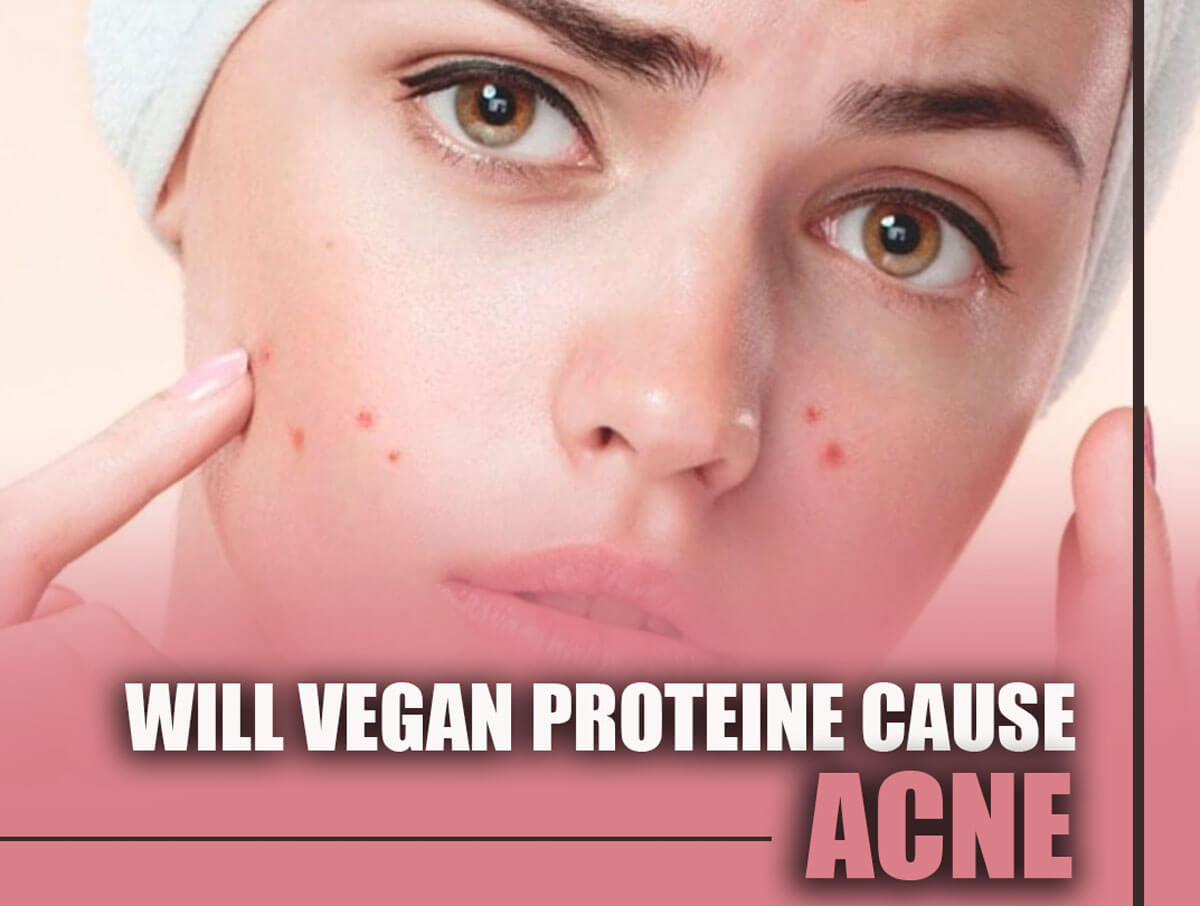
What makes whey protein acne-causing?
Some people add protein powder to their milkshakes to provide their bodies with supplement protein.
Those who add whey protein regularly to their meal may have seen Acne on their skin, which makes them bothered.
Milk has casein and whey proteins, like the protein powder protein.
But whey is responsible for making a hormone called insulin-like growth factor 1, or IGF-1, among these two proteins.
Insulin has a positive effect the sebum production and leads to its rise. As a result, Acne will appear on the skin.
If you suffer from the same issue and want protein supplements to eliminate Acne, you can use alternative options such as plant-based or vegan powders.
Does plant-based protein cause Acne?
The best thing about vegan proteins that can convince anybody why we need to use them is vegan proteins do not lead to the development of Acne, unlike whey protein powder.
Our body can break down vegan protein easier than whey protein.
And also another reason is vegan or plant-based proteins do not include heavy metals.
Another cool thing about vegan protein powder is its various types available in the market. Depending on your desire, you can choose the one that is high in protein.
The common vegan ingredients high in plant protein are grains, Seeds, and legumes.
The forms that vegan protein powder offers include:
- Hemp protein
- Pea protein
- Pumpkin seed protein
- Soy protein
- Brown rice protein
Unlike whey protein, which has a smell, vegan proteins are free of smell and taste. When you are lactose intolerant, you can choose vegan protein.
Another benefit of vegan protein is that it does not lead to stomach issues such as indigestion; it works well to build massive muscle.
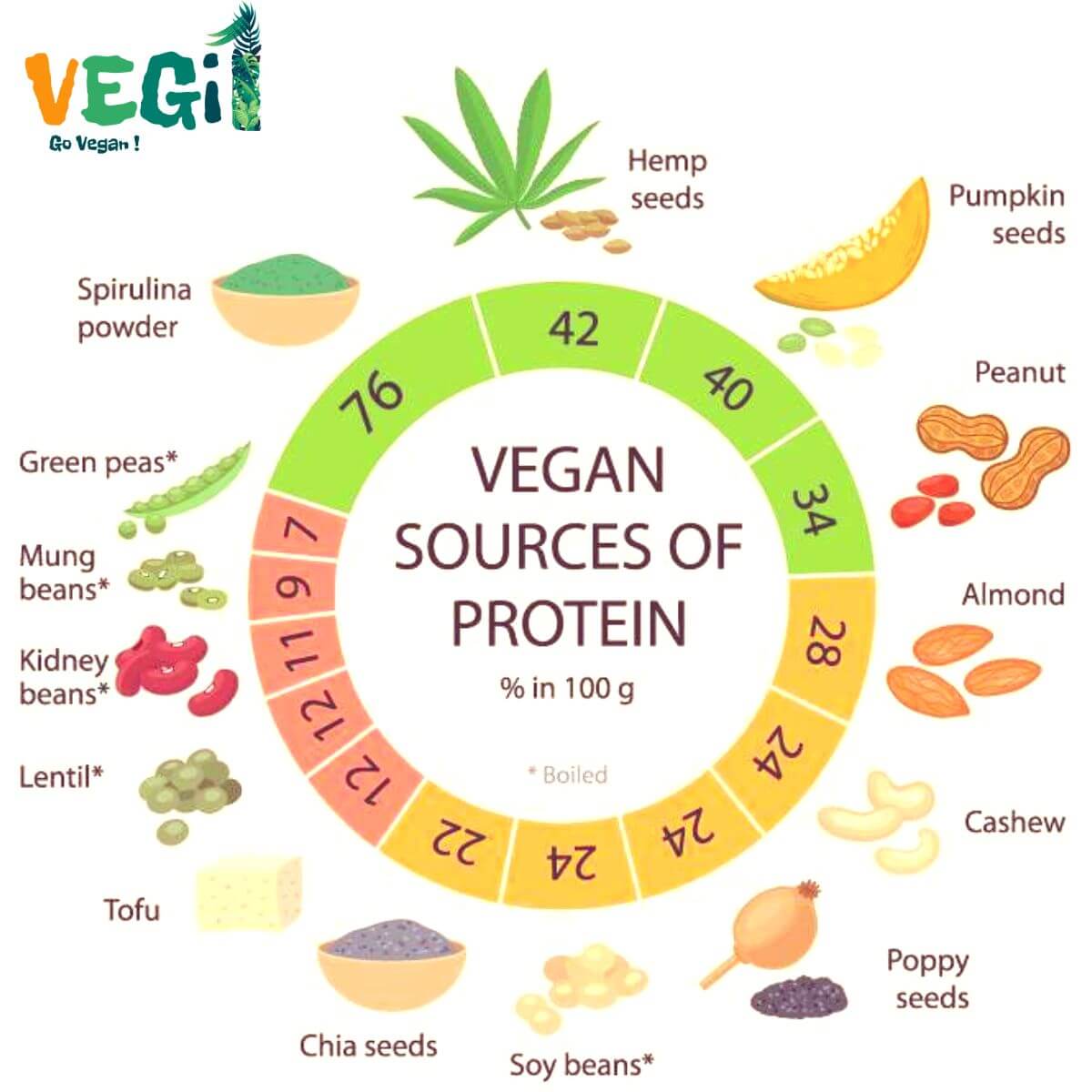
Source of vegan protein
Protein comprises 20 amino acids; 9 amino acids are the most essential. Your body cannot make them and rely on a proper diet to get them, while the other 11 amino acids are sorted into non-essential amino acids, and the body can produce them.
Both animal and plant-based protein offers these 9 amino acids but at different levels.
For example, beans, lentils, peas, and most vegetables have lower amounts of cysteine and methionine. Or nuts and seeds have lower amounts of lysine amino acid.
To get enough protein, these are the best sources of plant-based proteins:
- Tofu, tempeh, edamame
These are made of soybeans, the main protein source, and can meet your body’s essential amino acids.
- Lentils
A valuable source of plant protein is lentils which offer 18 gr protein per 198 gr. The cool thing about it is you can use it in many dishes such as salad.
- Beans
All kinds of beans, including kidney, black, and pinto, are great protein sources.
Chickpeas also can provide your body with protein requirements.
- Nutritional yeast
Nutritional yeast, as a source of protein, originated from Saccharomyces cerevisiae yeast, which has been deactivated. It can be added to some dishes like mashed potatoes and scrambled tofu.
- Spelt and teff
Spelled and teff belonging t the grain family is a good source of protein. You can use them as an alternative option to wheat and rice.
- Hemp seeds
Hemp seeds derived from the Cannabis sativa plant offer a high amount of protein, about 9 gr per 3 tbs hemp seeds.
- Green peas
Green peas include 9 gr protein per cup, higher than dairy milk.
- Spirulina
As an alga, Spirulina is one of the main protein sources; by eating 2 tablespoons of this, you will gain 8 gr protein.
- Soy milk
Soy milk is derived from soybeans, packed with large amounts of protein.
- Nuts, seeds, nut butter
Not only are they delicious, but they also offer a high amount of protein.
- Oats and oatmeal
By eating oats, you can gain a valuable amount of protein.
- Wild rice
Wild rice is 1.5 times richer in protein rather than other rice varieties.
- Fruits and vegetables
All fruits and vegetables provide you with protein in low or high amounts.
Besides these, there are other sources of proteins based on plants, such as chia seeds, bread, amaranth and, quinoa, seitan. Depending on your preference, you can emphasize its consumption.
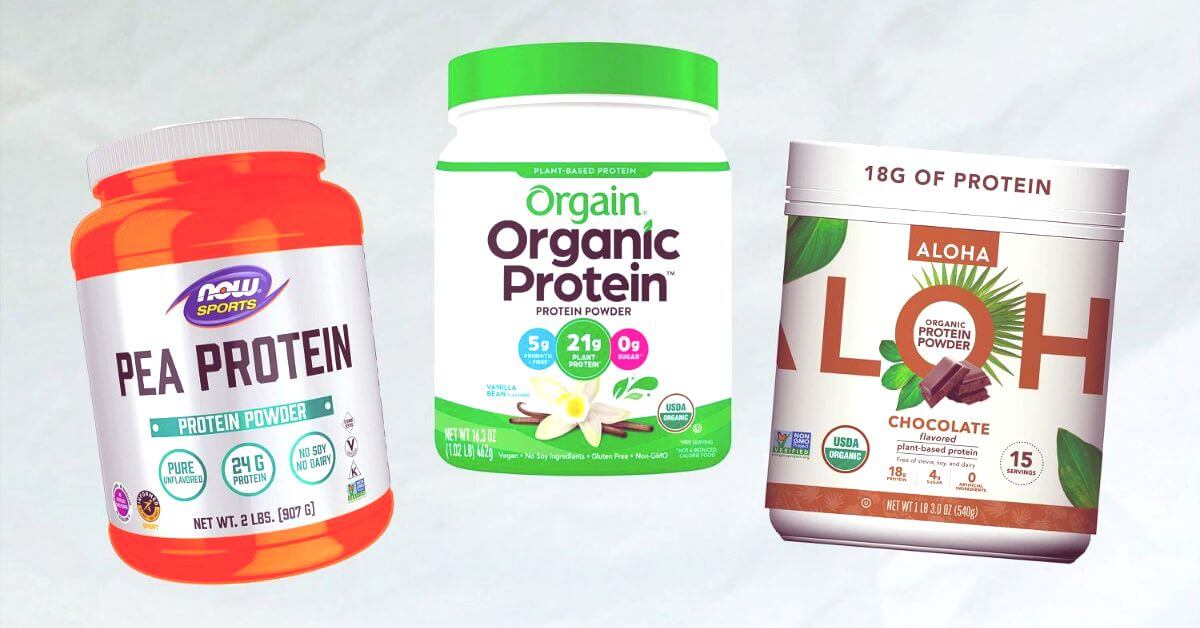
The best types of vegan protein powder
Here is the list of vegan protein powders and their nutritional value:
- Pea protein
It is made of yellow split peas, and in 28 gr unflavored pea protein, you can find about 21 gr protein, 100 calories. But this rate can vary from one brand to another. Pea protein is packed with the essential amino acids chain, including leucine, isoleucine, and valine, helping build muscles.
- Hemp protein
Hemp protein is extracted from cannabis, offering 12 gr protein and 108 calories in 28 gr unflavored hemp protein. Since hemp lacks lysine amino acid, you must eat other supplements such as legumes and quinoa.
- Soy protein.
Soy protein is a complete protein, unlike other plant proteins. Soy protein is rich in the BCAAs chain, helping to muscle building. In 28 gr of soy protein, you can get 22 gr protein and 95 calories.
However, it is less popular than others because some people may be allergic to soy protein, which can negatively impact your health.
- Pumpkin seed protein
Pumpkin seeds are rich in protein and healthy fat, offering 18 gr protein and 103 calories in 28 gr of unflavored pumpkin seeds protein. In addition to these, it is high in magnesium, zinc, iron, and other minerals.
- Brown Rice protein
The main advantage of brown rice is that it is inexpensive and can be found everywhere. In 28 gr of brown rice, there is 22 gr protein and 107 calories. Although it is low in essential amino acids, it can be a good source for building muscles because of the BCAAs chain.
- Sunflower seed protein
Sunflower seed protein is low in lysine amino acids and packed with other essential amino acids. In 28 gr of sunflower seed, you can get about 13 gr protein and 91 calories.
- Sacha Inchi protein
It is derived from star-shaped sacha inchi seeds or nuts. Per 28 gr of sacha inchi protein powder, you can find 17 gr of protein and 120 calories. It is the best source of essential amino acids except lysine.
- Chia protein
Chia seeds originated from Salvia hispanica, located in South America. It is mostly used in smoothies, porridge, and baked goods. Per 28 gr of chia protein, there is 10 gr protein and 50 calories. Similar to others, it is low in lysine amino acids.
- Protein blends
The plant protein blends are packed with all essential amino acids at a high level since they combine different plant proteins. For example, you can find a blend of pea protein with rice protein.
Do vegans need to add protein powder to their diet?
Although protein is necessary for muscles and organs, we need a limited amount daily.
The standard amount of protein consumption is estimated at 0.8 gr per kg of body weight, and those engaged in physical activities need up to 1 gr of protein per pound of their body weight. To measure the right amount of protein consumption, you must consider many factors like age, gender, activity, body weight, and more.
But if you are concerned about your protein consumption as a vegan and look for protein powder as a supplement to your diet, there is no need.
You can get enough protein from plant-based products like lentils, beans, etc.
Does Plant Protein Cause Inflammation?
People can get plant protein from different resources, some of which can lead to a rise in the inflammation rate while others can decrease the level of inflammation.
For instance, if you get vegan protein from nuts, it is more likely that your body reacts it through inflammation since the body easily absorbs their proteins, but if you get protein from fruits and vegetables, it is less likely that you don’t see inflammation signs in your body, this is because fruits and vegetables are high in antioxidants which has a positive effect in reducing inflammation.
If you are allergic to a certain vegan food such as peanuts, tree nuts, or wheat, consuming them can cause immune system reactions in different forms, such as headache, inflammation, nausea, breath issue, and stuffy nose. Hives, etc.
So, you need to check the ingredient of the dishes before eating them.

Can vegan-based protein lead to Acne?
Acne can appear on the skin for various reasons, but plant-based protein is not the main reason.
This is because vegan protein is healthier than animal-based proteins. Vegan proteins are easier to digest, allowing them to absorb into the body faster and don’t lead to negative effects.
Vegan ingredients with high protein levels include soy, seitan, pumpkin, seeds, nuts, beans, nutritional yeast, green peas, legumes, hempseed, and lentils.
Above all, lentils are rich in nutrients such as fiber and vitamins, including vitamin B, iron, magnesium, potassium, zinc, and protein.
How do Vegetarians Get Protein?
What do we need to eat to have healthy skin?
Healthy skin is close enough of reach, and you can enjoy your healthy skin by providing balance in nutrients. Here are nutrients that our skin needs to stay out of Acne and any damage:
- Vitamins A, E, C
Vitamin A is needed for the skin’s upper and lower layers. It protects the skin against sunburn as it is an antioxidant.
It aids in the functioning of the oil glands surrounding hair follicles. It can promote the healing of cuts and scrapes, particularly when used with steroids to reduce inflammation.
Without vitamin A, your skin will suffer from dryness and itchiness.
Vitamin C, a great and strong antioxidant, protects the skin against free radicals. Asa a result, it has a positive effect on skin cancer treatment.
A lower vitamin C level can lower the skin’s healing process.
Vitamin E is an antioxidant and autoinflammatory that absorbs UV light’s energy, hurting the skin and can cause skin cancer, wrinkles, and sagging.
- Proteins
Some amino acids in the protein are antioxidants that help the skin get rid of free radicals and protect the skin against UV rays.
- Healthy fats
To make the skin shiny, we need healthy fats; without them, our skin will be dry and wrinkled. Healthy fats are monosaturated and polyunsaturated fats derived from nuts, seeds, and avocados. These help the skin to stay moist and flexible.
Omega-3 fatty acids belong to polyunsaturated fat, which the body cannot make itself. With the help of this, your body is less likely to go through skin cancer and inflammation.
- Zinc
Zinc is significant in healing skin from UV damage since it can handle other materials, such as iron and copper. Zinc deficiency can cause itchy, like what you see in eczema. But it does not go better with using moisture or steroid cream.
- Selenium
Selenium helps other antioxidants protect the skin against UV rays. Having lower selenium in the diet can lead to skin cancer.
Benefits of vegan protein on skin and Acne
There are several benefits of using vegan-based protein for removing Acne from the skin and enhancing overall skin health:
- AS many plant-based proteins are rich in antioxidants and anti-inflammatory compounds, they can help you decrease inflammation in the skin, contributing to acne development.
- Since dairy products have been linked to Acne in some individuals, replacing vegan, dairy-free proteins can destroy Acne.
- Many plant-based proteins are packed with vitamins and minerals beneficial for skin health, including vitamins A, C, E, and various B vitamins and minerals like zinc and selenium.
- Insulin-like growth factor 1 (IGF-1) is heavily associated with Acne. Vegan proteins are typically lower in IGF-1 than animal-based proteins like whey, which could reduce Acne.
Does plant-based protein powder have any side effects?
Consuming plant-based proteins is not followed by any negative side effects if you use the right amount of protein. Before buying products, you must check the label to know how often you can consume them.
Besides this, you must check to see if these ingredients are natural or non-GMO to ensure that the quality of proteins is high.
If the powder contains artificial sweaters or additives, avoid using them, which can ruin your body’s fitness.
Consuming plant-based protein does not lead to acne development so you can eat them with a relief of mind. Just remember to consider the points mentioned in this part.
Facts about the whey proteins
The consumption of whey protein is increasing since it helps people with muscle building and weight loss.
But whey protein has many side effects that cannot be easily overlooked.
Some short side effects of whey protein include:
- stomach pains
- cramps
- headache
- nausea
- diarrhea
- reduced appetite
- fatigue
- acne breakout
But there are not all; consumption of whey protein can leave you with the long-term effect which affects your whole life. It is better to know what it will do with your body. Here are the long-term side effects.
- Kidney issues
- Liver problems
- Heart disease
- Ketosis
- Osteoporosis
- Gout
- Gastrointestinal problems
Different types of whey protein
There are three types of whey protein in the market including:
- WPC: Whey protein concentrate is low in fat and carbohydrate. To how extent it contains protein depends on its concentration.
- WPI: Whey protein isolate is free of fat and lactose and contains 90 percent protein.
- WPH: Whey protein hydrolysate is often called the “pre-digested” version of whey protein because it has undergone partial hydrolysis. This process allows the body to absorb protein more easily. Unlike the other two forms of whey protein, WPH requires less digestion.
WPH is mostly used in medical protein supplements since it helps the digestive system.
Vegan Protein Powder vs. Whey Protein Powder
Whey protein and vegan protein are different from each other in different aspects.
Whey protein is originated from animal-based proteins, while vegan protein can be provided by eating peas, brown rice, hemp, soy, chlorella, Spirulina, quinoa, and amaranth.
Whey protein, as a supplement, has gained large popularity for building muscles and raising their growth. While vegan protein can used in daily meals to improve overall health.
The production of whey protein includes extracting protein from the milk, then filtering and pasteurizing proteins. After that, the proteins are dried using various atomizing and spray-drying technologies, heat, or natural processes.
This process helps to separate further whey protein from the water, leaving behind a dry powder. The powder is then placed in tubs and containers and made ready for sale.
Making vegan protein includes grounding, extracting oil and other materials, and placing them under heated air to make them dried.
What makes vegan protein powder distinct from others is it includes essential amino acids.
Why vegan protein powders?
Vegan protein is based on nutritious proteins, fats, and carbohydrates.
In addition to these, they also include amino acids, vitamins, calcium, phosphorous, iron, and B12.
All of these notorious can help you build muscle, reduce inflammation, and maintain balance in the level of hormones and energy.
Consuming vegan powder helps digestion since the protein powders are prebiotics and probiotics.
Losing weight is another benefit of consuming vegan protein powder and, on the other hand, building muscle, which everyone looks for it.
In addition to protein, you can also intake other essential nutrients from a vegan diet compared to whey protein.
Those lactose intolerants or allergic to cow’s milk can consume vegan proteins without issue.
Vegan proteins can be extracted from many resources, such as peas, brown rice, and hemp, offering essential amino acids, unlike animal-based proteins.
Vegan-based proteins can easily break down compared with animal-based proteins.
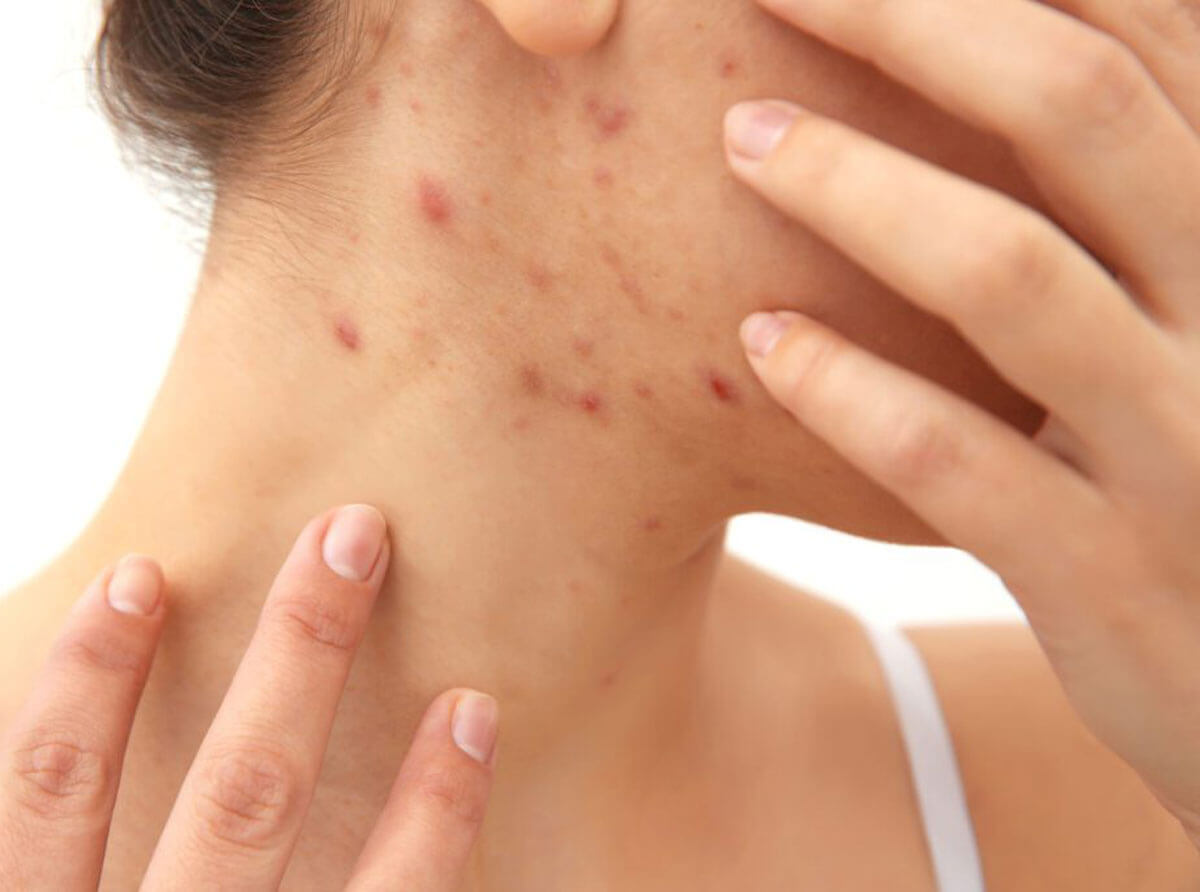
How to get rid of Acne?
There are multiple ways to treat Acne and improve the skin condition. Some methods are home remedies, and you can use ingredients in your home to get rid of Acne. Some other methods include medicines and injections.
Depending on the severity, you can apply each of the methods. But if you want to use a medicine, consult a dermatologist.
Home remedies
Here are home remedies that you can apply at home, but you should be patient to see the healing in your skin.
- Apple cider vinegar can remove bacterial and fungal elements from the skin. To make it combine 1 part of apple cider vinegar with 3 parts water.
- A mix of honey and cinnamon mask has antibacterial effects on acnes. It can help with acne treatment. Add 2 tablespoons of honey to 1 teaspoon of cinnamon to make this mask.
- Using tea tree oil: This is the best alternative option for topical and oral antibiotics. But it should not be used for the long term. It can lead to bacterial resistance. To prepare it, blend 1 part tea tree oil with 9 parts of water.
- Using green tea: This remedy contains polyphenols, helping eliminate bacteria and lower inflammation. Brew the green tea in water for a few minutes, and when it becomes cool, apply it.
- Using witch hazel: Witch hazel improves skin condition by reducing bacteria from the skin surface and also reducing irritation and inflammation.
- Using aloe vera: Since aloe vera includes both silicic acid and sulfur, it is mostly used in treating Acne. You can buy a ready aloe vera gel or extract it from the plant and apply it on your skin 1-2 times daily.
- Using fish oil supplement: This ingredient contains two types of omega-3 acids called eicosapentaenoic acid (EPA) and docosahexaenoic acid (DHA) which have a massive impact on the inflammatory factors and, as a result, reduce the development of Acne on the skin. Walnut and chia seeds are the best sources of omega-3 acids.
- Zinc supplements: Zinc is important for cell growth, hormone production, metabolism, and immune function. Having a zinc supplement in the diet can boost the treatment process of Acne.
Medications
Medications are available in both forms of oral and topical.
Oral medications include:
- Antibiotics: It works well for Acne caused by bacteria.
- Isotretinoin: It reduces the size of oil glands, producing Acne.
- Contraceptives: These medications contain both estrogen and progesterone, helping acne treatment.
- Hormone therapies: A kind of treatment include low-dose of estrogen and progesterone, blocking hormones that affect hair follicles and oil glands.
Topical medications include:
- Benzoyl peroxide: It directly affects bacteria, but it should be applied in low concentration to avoid irritation skin.
- Retinoids: You can purchase them without a prescription, and they should be used for the entire skin to stop the formation of new Acne.
- Dapsone: As a topical gel has antibacterial features, reducing inflammation rate.
- Salicylic acid: This helps you remove the layer of dead skin cells and stop hair follicles from clogging.
- Azelaic acid: As a last topical medication, it removes microorganisms on the skin and reduces inflammation.
The last words
Protein is an essential substance for the body’s health, and because of that, some people may consume protein supplements like whey protein in their diet.
Since whey protein is associated with the rise of hormones, it can lead to acne development.
But it only goes the same for plant-based proteins if the person has some allergies.
It’s important to remember that everyone’s body reacts differently to different types of food. Suppose you suspect that a particular food or supplement, including vegan protein, contributes to Acne. In that case, it may be beneficial to temporarily eliminate it from your diet to see if your skin condition improves.
I hope reading this article answers your question, “Will Vegan Protein Cause Acne?” and eliminate Acne on your skin and improve your skin health by substituting plant-based proteins with whey proteins.
If you have any question in this case which is not answered through this article, please feel free to ask us in the comment section.


